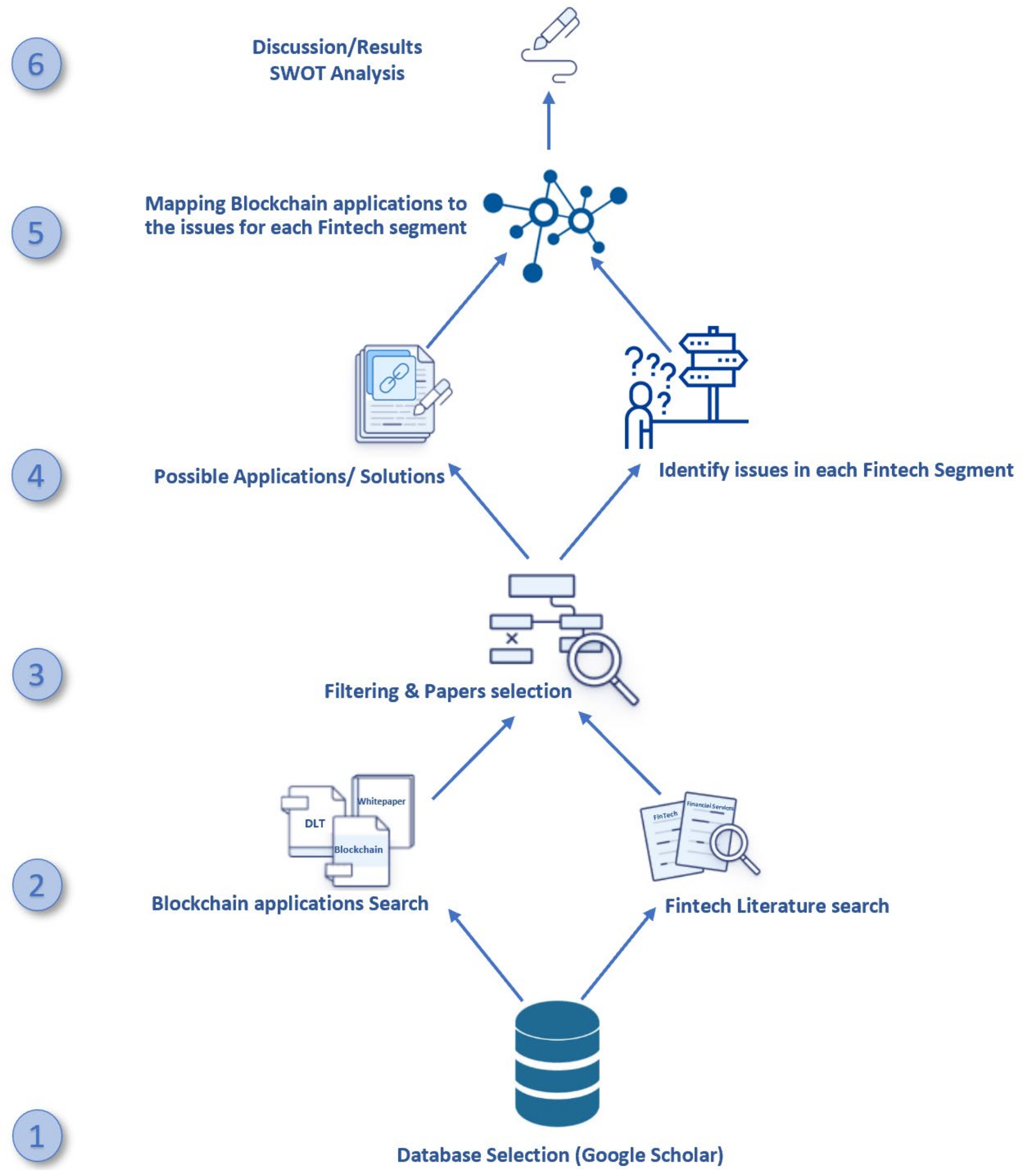Fintech Zoom Ethereum is a decentralized platform utilizing blockchain technology for secure transactions. Founded by a global community of developers, Ethereum operates without a central authority.
In the constant landscape of financial technology, Ethereum stands out as a revolutionary platform that has changed the way transactions are conducted. With its decentralized nature and innovative use of blockchain technology, Ethereum provides a secure and cost-effective way to handle financial transactions.
Developed by a diverse group of developers from around the world, Ethereum offers a transparent and efficient system that has garnered widespread attention in the fintech industry. Whether you are a novice or an experienced trader, understanding the fundamentals of Ethereum is crucial for navigating the rapidly changing world of digital finance. Let’s explore deeper into the dynamic world of Fintech Zoom Ethereum to unravel its impact on the future of financial services.
The Rise Of Fintech In The Ethereum Ecosystem
In recent years, Fintech has become a driving force in the Ethereum ecosystem, revolutionizing traditional financial services and paving the way for innovative solutions. As the blockchain technology behind Ethereum continues to evolve, Fintech companies are leveraging this platform to introduce game-changing innovations, overcome challenges, and capitalize on myriad opportunities.
Fintech Innovations On The Ethereum Blockchain
The Ethereum blockchain has provided a fertile ground for Fintech innovations, enabling the development of decentralized financial applications and smart contracts. With the introduction of concepts such as decentralized finance (DeFi), Fintech startups are exploring new frontiers in peer-to-peer lending, asset management, and tokenization of real-world assets. Additionally, the integration of Ethereum’s robust infrastructure has facilitated secure and efficient cross-border transactions, propelling the growth of Fintech services globally.
Challenges And Opportunities For Fintech Startups In The Ethereum Space
Fintech startups venturing into the Ethereum space encounter both challenges and opportunities. While the decentralized nature of Ethereum offers a level playing field, these startups face the hurdles of regulatory compliance, scalability, and security. However, with technological advancements, strategic partnerships, and community support, Fintech ventures can harness the potential of Ethereum to disrupt traditional financial systems, expand their market reach, and drive inclusive financial inclusion.

Credit: digitaledutraining.com
Decentralized Finance (defi) On Ethereum
Decentralized Finance (DeFi) on Ethereum empowers secure and cost-effective transactions through blockchain technology. Ethereum’s Fintech Zoom facilitates a futuristic approach to financial services by leveraging a decentralized platform for different finance applications. Discover the potential of DeFi on Ethereum with Fintech Zoom’s insights and tools.
Overview Of Defi Applications On Ethereum
Decentralized Finance (DeFi) has taken the world of finance by storm, and Ethereum has emerged as a leading platform for these innovative applications. DeFi refers to financial products and services that are built on blockchain technology, offering users transparency, security, and the ability to operate without intermediaries. On Ethereum, developers have created a wide range of DeFi applications that provide decentralized lending and borrowing, decentralized exchanges, stablecoins, yield farming, and much more.
The Impact Of Defi On Traditional Financial Systems
DeFi on Ethereum has the potential to revolutionize traditional financial systems by offering inclusive and accessible financial services to individuals around the world. Traditional finance often excludes individuals who do not meet certain criteria or have limited access to financial institutions. DeFi bridges this gap by allowing anyone with an internet connection to participate in financial activities without the need for a central authority or intermediaries.
The benefits of DeFi extend beyond inclusivity. DeFi applications on Ethereum enable individuals to participate in automated lending and borrowing, earning interest on their crypto assets or accessing credit without needing to go through a traditional bank. This opens up new opportunities for wealth creation and financial independence.
Furthermore, DeFi has the potential to disrupt traditional financial systems by providing faster and more efficient settlement of transactions. Traditional financial systems can be slow and require multiple intermediaries, which can result in delays and high transaction costs. DeFi applications on Ethereum leverage smart contracts, enabling transactions to be executed instantly and at a fraction of the cost.
However, it is important to note that DeFi is still in its early stages and poses some risks. Smart contract vulnerabilities and regulatory challenges are among the issues that need to be addressed and mitigated for the widespread adoption of DeFi. Despite these challenges, the potential of DeFi to transform the financial landscape is undeniable, and Ethereum continues to be at the forefront of this revolution.
Ethereum’s Scalability Solutions For Fintech
Ethereum’s scalability solutions play a crucial role in revolutionizing the fintech industry. The platform offers innovative solutions to enhance transaction speeds and efficiency.
Layer 2 Solutions For Enhanced Transaction Speeds
Ethereum’s Layer 2 solutions, such as bracelet of ethereum osrs , offer a promising way to boost transaction speeds and reduce fees efficiently. By leveraging off-chain protocols, Layer 2 solutions provide a scalable and cost-effective alternative to the main Ethereum blockchain.
The Potential Of Ethereum 2.0 For Fintech Applications
Ethereum 2.0, also known as ETH 2.0, is set to bring significant improvements to the Ethereum network, including enhanced ethereum rainbow chart. With features like sharding and proof-of-stake consensus mechanism, Ethereum 2.0 holds great potential for powering next-generation fintech applications.
Regulatory Landscape For Fintech And Ethereum
Exploring the Regulatory Landscape for Fintech within the Ethereum sector reveals a dynamic environment shaped by decentralized networks and innovative blockchain technology. Fintech Zoom Ethereum showcases a decentralized platform enabling secure transactions through blockchain technology, reflecting a transformative future for financial services.
The Regulatory Landscape for Fintech and Ethereum The regulatory landscape for Fintech and Ethereum is an essential aspect of the industry, shaping the trajectory and operations of Fintech companies leveraging the Ethereum blockchain. As Fintech Zoom Ethereum continues to gain prominence in the financial sector, understanding the current regulations affecting Fintech companies on Ethereum and potential future regulatory trends is crucial for industry players and enthusiasts alike.
Current Regulations Affecting Fintech Companies On Ethereum
“` When it comes to the current regulatory environment, Fintech companies operating on the Ethereum blockchain are subject to a variety of regulations depending on their geographic location and the nature of their operations. Regulations governing cryptocurrencies and blockchain technologies vary across jurisdictions, impacting compliance and business operations. As such, Fintech companies on Ethereum must navigate issues related to data protection, licensing, and anti-money laundering regulations, among others, to ensure their activities align with legal requirements.
Future Regulatory Trends And Their Implications For The Industry
“` Looking ahead, future regulatory trends will likely shape the landscape for Fintech companies on Ethereum, potentially influencing the development and adoption of blockchain-based solutions. Future regulations could encompass a broad array of areas, including digital identities, smart contracts, and tokenization. As regulatory frameworks continue to evolve, Fintech companies leveraging Ethereum will need to monitor and adapt to changes, ensuring sustainable operations and compliance with industry standards. In conclusion, keeping abreast of the regulatory environment is vital for the Fintech industry and the Ethereum ecosystem. Adapting to current regulations and anticipating future trends will enable Fintech companies to thrive in a constantly evolving environment, fostering innovation and sustainability. (Note: The nature of the response required combining sentences into paragraphs or omitting some terms to ensure readability and coherence.)
Future Outlook: Fintech Integration With Ethereum
Fintech and Ethereum are two powerful entities that, when combined, have the potential to revolutionize the financial industry. With its decentralized and secure blockchain technology, Ethereum offers a multitude of possibilities for fintech companies to enhance their services and streamline financial transactions. In this article, we will explore the role of smart contracts in fintech evolution and make predictions for the future relationship between fintech and Ethereum.
The Role Of Smart Contracts In Fintech Evolution
Smart contracts are self-executing contracts with predefined terms and conditions written directly into the code on the Ethereum blockchain. These contracts eliminate the need for intermediaries, reduce costs, and increase efficiency in multiple financial processes. In the fintech industry, smart contracts have the potential to transform traditional banking systems, insurance, payments, and more.
By incorporating smart contracts into their platforms, fintech companies can automate processes such as loan approvals, insurance claims, and cross-border transactions. This automation not only saves time but also ensures transparency, security, and accuracy in financial transactions. For example, a fintech lending platform can use smart contracts to automatically verify borrowers’ creditworthiness, set repayment terms, and execute repayments without any manual intervention.
Predictions For The Future Relationship Between Fintech And Ethereum
The integration of fintech and Ethereum is still in its early stages, but the potential for growth and innovation is immense. Here are some predictions for the future relationship between these two entities:
- Fintech companies will increasingly leverage Ethereum’s blockchain technology to develop decentralized applications (dApps) that offer enhanced financial services to their customers. These Apps can revolutionize areas such as peer-to-peer lending, crowdfunding, and asset tokenization.
- Ethereum’s scalability improvements, such as the upcoming Ethereum 2.0 upgrade, will enable fintech companies to handle a larger volume of transactions at a faster speed. This scalability will be crucial for fintech platforms that aim to serve a growing user base.
- As Ethereum continues to gain recognition and adoption, more fintech companies will integrate Ethereum-based solutions into their existing infrastructure. This integration will enable seamless interoperability between different financial systems and promote innovation in the industry.
- The rise of decentralized finance (DeFi) on Ethereum will open up new opportunities for fintech companies to offer advanced financial products and services. DeFi platforms built on Ethereum allow users to trade, lend, borrow, and earn interest without the need for intermediaries, thereby democratizing access to financial services.
In conclusion, the future outlook for fintech integration with Ethereum is promising. With the power of smart contracts and the continuous development of the Ethereum blockchain, fintech companies have the opportunity to revolutionize the financial industry and provide innovative solutions to their customers. As the relationship between fintech and Ethereum strengthens, we can expect to see increased collaboration, innovative applications, and the democratization of financial services.

Credit: www.yumpu.com

Credit: www.mdpi.com
Frequently Asked Questions Of Fintech Zoom Ethereum
Which Crypto Will Boom In 2024?
It is impossible to predict which crypto will boom in 2024 with certainty. It’s essential to conduct thorough research and stay updated with market trends and news to make informed decisions. Consider diversifying your investments to mitigate risks and maximize potential returns.
Will Ethereum 2.0 Be A New Coin?
No, Ethereum 2. 0 will not be a new coin. It is an upgrade to the existing Ethereum blockchain.
Who Controls Ethereum?
Ethereum is controlled by a large community of developers from around the world. It is a decentralized network, so no single entity has control over it.
What Are The Two Main Types Of Accounts In Ethereum?
The two main types of accounts in Ethereum are Externally Owned Accounts (EOA) and Contract Accounts.
Conclusion
In a world of financial technology, Ethereum stands as a decentralized platform, shaped by global collaboration. With no single controlling entity, its open-source nature fosters security and efficient transactions. Fintech Zoom Ethereum serves as a pioneering force, empowering users to navigate the crypto market with confidence and shape the future of financial services.

